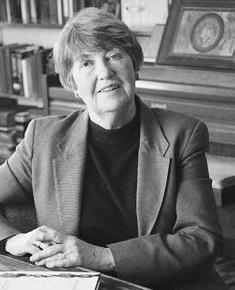De Duits-Amerikaanse dichteres en vertaalster Lisel Mueller werd geboren op 8 februari 1924 in Hamburg als dochter van de pedagoog Fritz C. Neumann en zijn vrouw, de lerares Ilse Burmester. Fritz C. Neumann was tot 1930 leraar aan de Lichtwarkschule en vervolgens aan een Hamburgs Realgymnasium. Hij werd ontslagen uit het beroep van leraar na de overdracht van de macht aan de nazi’s in 1933 en was tijdelijk werkzaam als leraar aan scholen voor Duitse vluchtelingen in Frankrijk en Italië. In 1937 slaagde hij erin de Verenigde Staten binnen te komen en in 1939 kon hij zijn vrouw en twee dochters over laten komen. Daar vond hij eerst een baan als docent Duits en Frans aan het Evansville College in Evansville, Indiana, waar het gezin zich ook vestigde. Lisel studeerde in 1944 af aan de Universiteit van Evansville. Ze trouwde met de musicoloog Paul Mueller, die als redacteur bij een juridische uitgeverij werkte en met wie ze twee kinderen kreeg. Ze woonden in Lake Forest, Illinois. Paul Mueller stierf in 2001. Lisel Mueller doceerde enige tijd literatuur aan de Universiteit van Chicago,aan Elmhurst College in Elmhurst (Illinois) en aan Goddard College in Plainfield (Vermont).In 1965 publiceerde Mueller haar eerste poëziebundel “Dependencies”. Haar essays en poëzie werden in verschillende tijdschriften opgenomen, waaronder de Chicago Review, Plowshares, de New England Review en Poetry. Mueller vertaalde ook gedichten van Marie Luise Kaschnitz en teksten van Anna Mitgutsch in het Engels. Voor de in 1980 verschenen bundel “The Need to Hold Still” ontvingzij in 1981 de National Book Award for Poetry. Als de eerste en tot nu toe enige Duitse dichteres ontving Lisel Mueller de Pulitzer Prize voor poëzie in 1997 voor haar bundel “Alive Together”. In 2002 ontving Mueller de Ruth Lilly Poëzieprijs, waaraan een bedrag van $100,000 verbonden is.
Moon Fishing
When the moon was full they came to the water.
some with pitchforks, some with rakes,
some with sieves and ladles,
and one with a silver cup.
And they fished til a traveler passed them and said,
“Fools,
to catch the moon you must let your women
spread their hair on the water —
even the wily moon will leap to that bobbing
net of shimmering threads,
gasp and flop till its silver scales
lie black and still at your feet.”
And they fished with the hair of their women
till a traveler passed them and said,
“Fools,
do you think the moon is caught lightly,
with glitter and silk threads?
You must cut out your hearts and bait your hooks
with those dark animals;
what matter you lose your hearts to reel in your dream?”
And they fished with their tight, hot hearts
till a traveler passed them and said,
“Fools,
what good is the moon to a heartless man?
Put back your hearts and get on your knees
and drink as you never have,
until your throats are coated with silver
and your voices ring like bells.”
And they fished with their lips and tongues
until the water was gone
and the moon had slipped away
in the soft, bottomless mud.
A Day Like Any Other
Such insignificance: a glance
at your record on the doctor’s desk
or a letter not meant for you.
How could you have known? It’s not true
that your life passes before you
in rapid motion, but your watch
suddenly ticks like an amplified heart,
the hands freezing against a white
that is a judgment. Otherwise nothing.
The face in the mirror is still yours.
Two men pass on the sidewalk
and do not stare at your window.
Your room is silent, the plants
locked inside their mysterious lives
as always. The queen-of-the-night
refuses to bloom, does not accept
your definition. It makes no sense,
your scanning the street for a traffic snarl,
a new crack in the pavement,
a flag at half-mast — signs
of some disturbance in the world
because your friend, the morning sun,
has turned its dark side toward you.

Lisel Mueller (Hamburg, 8 februari 1924)
